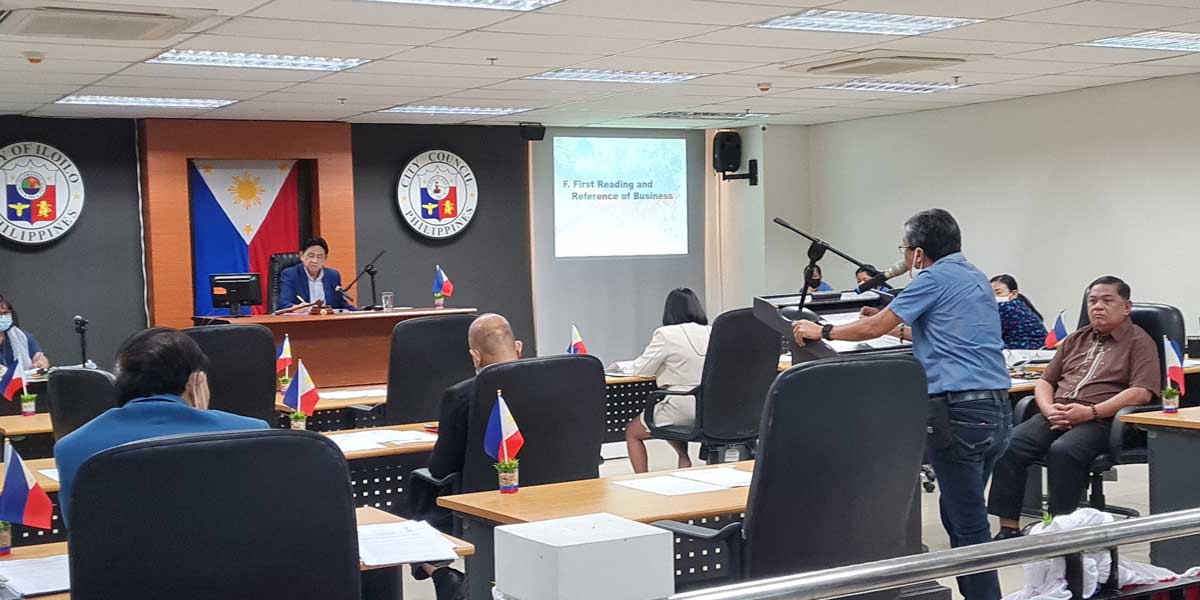
By Joseph B.A. Marzan
A member of the Sangguniang Panglungsod who also operates one of the city’s major transport terminals lauded the city government’s implementation of the Local Public Transport Route Plan (LPTRP), even as the first day on Monday was deluged with complaints due to lack of information and hundreds of passengers queueing for their rides.
Councilor Lyndon Acap, whose family operates the Mohon Terminal in Arevalo district, said the implementation was successful after fine-tuning the problems identified in the first two days.
Acap admitted that there was chaos initially, but this was quickly fixed by the city government and the Land Transportation Franchising and Regulatory Board-Region 6 (LTFRB-6).
The LTPRP implementation started four days ago on June 12.
“In my own observation, and speaking in behalf as a terminal operator, when we first implemented this, we weren’t able to reach our goal. There is a fine-tuning. Our implementors, the LTFRB, fine-tuned it, that is why they saw the problems,” said Acap.
“As a terminal operator, I am very proud to inform that the LPTRP that was imposed or implemented by the city of Iloilo is a successful one. I’m very proud to report that the Mohon terminal was calmer than the Molo Plaza or a police station here. Congratulations to the city government for this very successful implementation of the LPTRP,” he added.
PREPAREDNESS
But Western Visayas Transport Cooperative president Raymundo Parcon said that the whole transport system was unprepared for the implementation.
“We were not prepared because we had no dry run. We weren’t able to test properly, and our terminals were just let be. There should be monitoring there on how many passengers alight from provincial jeepneys. All four terminals in Iloilo City experienced problems,” Parcon said during the session.
“I was so stressed, like my blood pressure was rising. While I was going around the terminals, the lines were long, even in [Mohon] passengers waited for a long time,” he added.
Parcon said they already secured special permits from the LTFRB-Region 6 for additional units to ply several major routes in the city.
He cited that jeeps previously plying the Leganes-SM City route have been granted authority to resume on their routes.
He said that the situation was now “manageable” after the augmentations and other measures implemented by both the city government and the transport groups in response to the issues on Monday.
“I was happy today because our terminals are now manageable and there’s no longer reason to attack the city and us as transport sector leaders,” Parcon said.
“We saw that the implementation of the LPTRP is really good, and the city can implement this. What is important is that in the whole city, all city loop jeeps, should have special permits,” he added.
Transportation committee chairperson Councilor Romel Duron questioned why the LPTRP was implemented despite the lack of preparedness, especially in the number of jeepneys.
“Originally, traditional jeepneys are at 2,538. It was replaced by 1,767 modernized jeepneys. As of now, there are only 77 modernized jeepneys. Most traditional jeepneys were not able to comply, I think, with permits required by the LTFRB-6. Since they weren’t able to comply, [the LPTRP] shouldn’t have been implemented,” said Duron.
Acap said that traditional jeepneys should be given more tolerance while additional modernized jeepney units have yet to operate.
“Modernization is stopping traditional [jeepneys] from plying the roads because they need to change [the units]. But because the LPTRP was rushed, and the traditional jeepneys are still needed, I think it’s just proper that we need to give a little more tolerance [to traditional jeepneys], until such time that modernized jeepney units arrive, so that the implementation of the LPTRP would not be hampered,” Acap said.



















